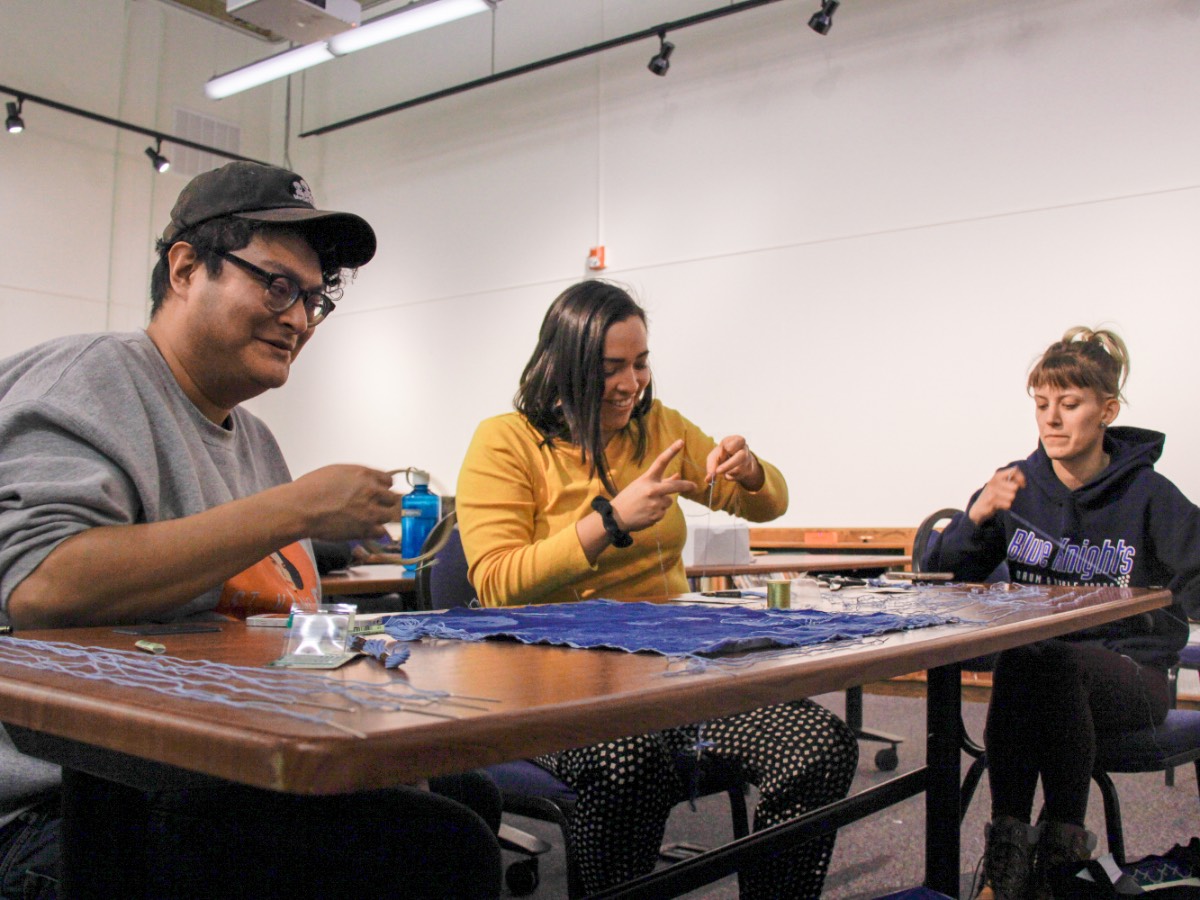The North Star, also known as our guiding star, changes every 25,000 years, which means 1,000 years from now we will have a new North Star instead of Polaris. JUMP!STAR, an initiative created by New York-based artist George Ferrandi, seeks to predict how this shift on the celestial scale will impact the world.
Supported by the National Endowment for the Arts Our Town Grant Program, Symphony in the Flint Hills, Harvester Arts and Chamber Music at the Barn, this project has brought WSU students the opportunity to participate in inventing a new holiday.
Its mission is to predict the ways cultures change over time and to celebrate new traditions.
“To think about what the celebration will be like in 1,000 years when Polaris is no longer our North Star, you have to predict all the ways things like music, costumes and food will change,” says Kristin Beal, Shift Space Gallery director and JUMP!STAR co-teacher.
Essentially, the initiative is to invent a new holiday 1,000 years in advance. Ferrandi is collaborating with other artists and the community to develop music and dances that will be will be used to celebrate this intergalactic event, as well as other traditions.
During the fall semester, WSU first-year seminar students had the opportunity to enroll in Beal's six-credit-hour JUMP!STAR class, co-taught by Ferrandi.
They were asked to imagine their future 10 years from now through a series of exercises. The dekascope is just one piece of programming for JUMP!STAR'S mission, which is a document the students fill out that asks them to reflect upon themselves and to predict their futures.
Students are asked to “jump star it,” which is to look deep into the future by filling out the questions in the dekascopes. Each one will be sealed into a sculptural time capsule during the commemorative ceremony on Tuesday, Dec. 11. Designed and created by WSU students, the time capsule will be housed on campus for 10 years. In 2028, the time capsule will be opened and the dekascopes will be sent out to the students to see how true their predictions were.
“You have to look at the trajectory of music to see how it will change in the future,” says Beal. “The same is true for ourselves.”
By participating in this goal-setting exercise, students think about their values and what they hope to accomplish in the next 10 years.
“The purpose of this is to actionably try to make a mark on this world,” Beal says.
For more information, visit http://www.jumpstar.love.
Have a great story for us to tell? Let us know.


 Reyane Alfraih
Reyane Alfraih